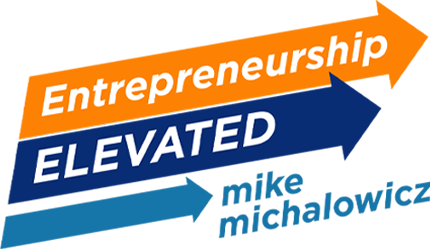You’re probably thinking, pop quiz? I haven’t even had my coffee yet, man! Relax. This pop quiz only has one question. It’s a tough one, though. Are you ready?
What do you stand for?
Need a minute? No problem. Take two.
Still need more time? Feeling stumped? Thinking you’ll come back to it later? Yeah. I know the drill. You’ll add it to your to-do list and then forget about it, thinking you have more important, concrete things to do. And then you’ll permanently forget about it.
What if I told you that the fact that you don’t know what you stand for and/or haven’t communicated that to your customers is losing you business? I mean, like a shit-load of business. Now, would you take the time to answer the question?
If you don’t know what you stand for, you’re missing out, people. Big time.
First and foremost, you’re missing out on potential customers who would respect your stance and choose you over other companies because of it. Consumers care more about WHO you are than WHAT you are.
Think Newman’s Own, Paul Newman’s hugely successful food company. Did people buy Paul’s salad dressing because it was so delicious, or because he was a famous actor? Maybe a few people, sure. But the main reason consumers chose his oil and vinegar blend over other options is because they knew 100% of the profits went to charity, specifically his Hole in the Wall Camps for seriously ill children.
Paul’s mission is simple and it’s out there for all to see: “Shameless Exploitation in Pursuit of the Common Good.” Does he sell more popcorn because we know his mission? Yup. How does $280 million in profits sound to ya?
When you don’t have a mission, the purpose that drives you to succeed, you also miss out on countless advantageous partnering opportunities. With a clearly stated mission you are able to connect with like-minded organizations with a similar or compatible purpose, and leverage that partnership into the best kind of promotion— the kind money can’t buy.
A perfect example of this is The Body Shop, founded by Dame Anita Roddick. (She wasn’t a Dame when she started her business— well, maybe not that kind of dame, anyway.) You can trace the success of The Body Shop back to Anita’s commitment to social activism. In 1986 she partnered with Greenpeace, touting her products as helping to save the whales. She got loads of free publicity, and built her whole brand around her activism.
Anita took a stand against animal testing and other common practices in the cosmetics industry —her industry— and 20 years later The Body Shop has 2,400 stores in 61 countries. She posted her mission statement in her shop windows for all to see: “Our products are not tested on animals, never have been and never will be.” Did people buy more of her company’s make-up, lotions and potions because they admired her stance and respected her involvement with Greenpeace and other organizations? Absolutely. When The Body Shop went public the London Stock Exchange dubbed the stock the “shares that defy gravity.”
So take the necessary time to figure out what you stand for and put it out there. Remember, it’s not about the bumper stickers on your car; it’s about the purpose in your heart. That’s a schmaltzy way of saying, be authentic, not trendy, but you’ll forgive me for a little schmaltz on this fine Monday morning.
Take your cues from Paul and Anita and come up with your own one-sentence mission statement. What? Did you think I was just asking the question for my own amusement? This is a pop quiz, people. Get to it!











Love this one too!! I will put that in my Festival Business Academy training for people to develop festival business with a MISSION!! TY!!
Katie Moore